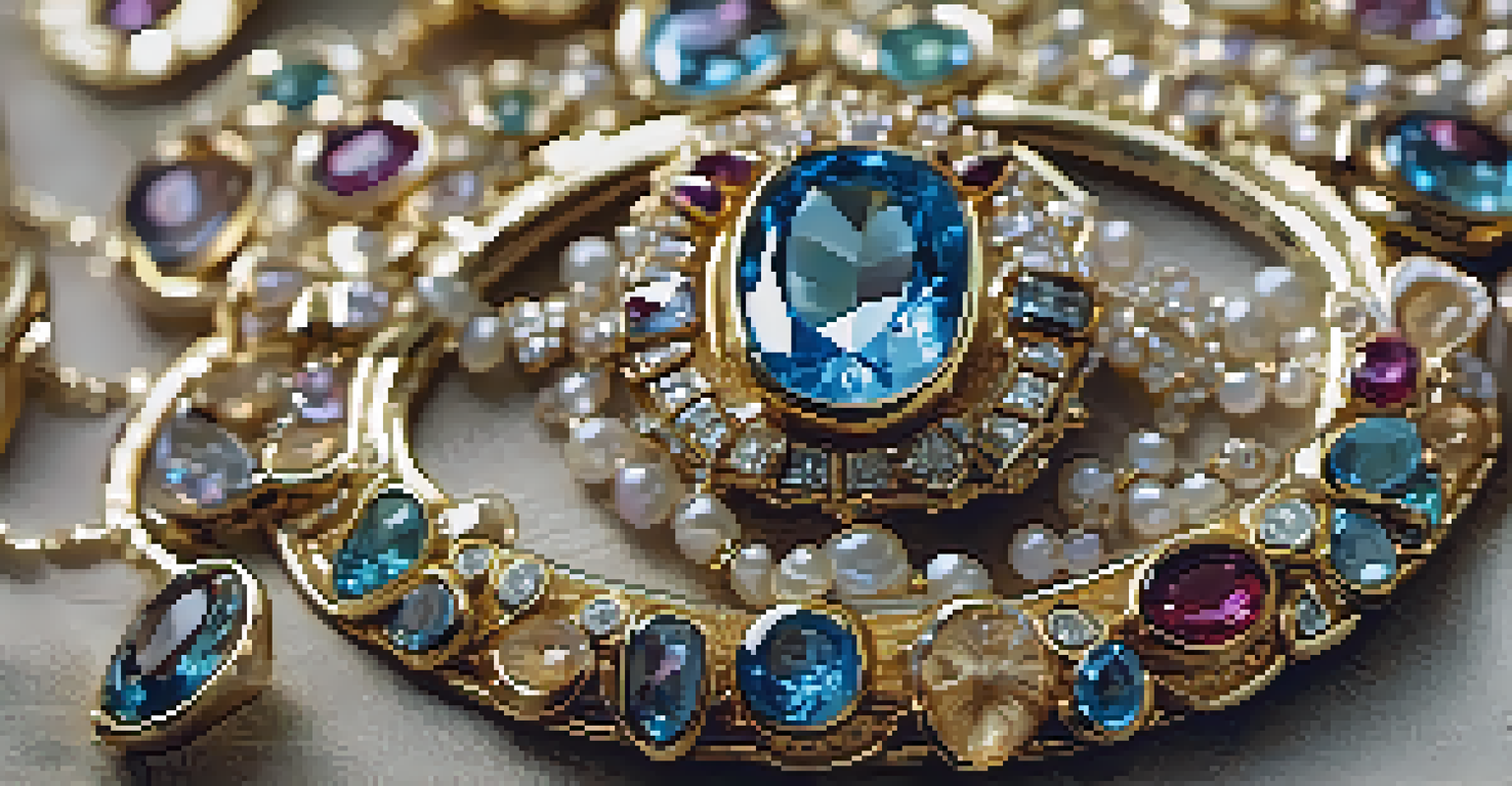Sustainable Luxury: Balancing Elegance and Environmental Impact

Understanding Sustainable Luxury: What Does It Mean?
Sustainable luxury is a concept that blends high-end living with environmental responsibility. It challenges the traditional notion that luxury items must come at a cost to the planet. Instead, it champions the idea that elegance and eco-friendliness can coexist, providing consumers with guilt-free indulgence.
Sustainability is not a trend. It’s the future of luxury.
At its core, sustainable luxury focuses on quality over quantity, emphasizing craftsmanship and longevity. This means investing in pieces that are not only beautiful but also made to last, reducing the cycle of fast fashion. The goal is to create a lasting relationship between the consumer and the product, fostering appreciation over disposability.
As more brands adopt sustainable practices, consumers are becoming increasingly aware of their choices. This shift encourages a new standard in luxury markets, where the appeal lies not just in aesthetics but also in ethical production and sourcing. It's a refreshing change that invites us to rethink our definitions of luxury.
The Rise of Eco-Conscious Brands in the Luxury Market
In recent years, we've seen a surge of luxury brands pivoting towards sustainability. This shift is often driven by consumer demand for transparency and ethical practices. Brands like Stella McCartney and Gucci are leading the charge, showcasing how luxury can be both exquisite and sustainable.

These eco-conscious brands are innovating by using sustainable materials, such as organic cotton, recycled fabrics, and even vegan leather. They prioritize ethical labor practices, ensuring that workers are treated fairly and compensated adequately. This holistic approach not only elevates their brand image but also resonates with a growing audience of socially responsible consumers.
Luxury Meets Sustainability
Sustainable luxury combines high-end living with eco-friendliness, proving that elegance and environmental responsibility can coexist.
Moreover, many luxury brands are investing in technology to track their supply chains and minimize their carbon footprints. By embracing these advancements, they're setting an example for others in the industry, proving that luxury can be synonymous with accountability and care for the planet.
Sustainable Materials: The Heart of Eco-Friendly Luxury
When we think of luxury, materials like silk, cashmere, and leather often come to mind. However, the sustainable luxury movement is redefining what materials can be considered high-end. Brands are now exploring alternatives that are both luxurious and environmentally friendly.
The greatest luxury is to be able to create something that lasts.
For instance, organic cotton and linen are becoming popular choices for upscale clothing, offering softness and elegance without harmful pesticides. Similarly, innovative materials like Piñatex, made from pineapple leaves, provide a sustainable alternative to traditional leather. These materials not only reduce waste but also tell a story about responsible sourcing.
By prioritizing sustainable materials, luxury brands can create beautiful products that align with eco-conscious values. This approach encourages consumers to make choices that reflect their personal ethics while still enjoying the finer things in life.
The Role of Artisan Craftsmanship in Sustainable Luxury
Artisan craftsmanship is a cornerstone of sustainable luxury, highlighting the importance of skilled workmanship in creating high-quality products. Unlike mass production, which often leads to waste and poor quality, artisan methods focus on precision and care. This not only enhances the product's value but also supports local economies.
Many luxury brands are partnering with artisans to create unique pieces that tell a story. For example, handcrafted jewelry made by local artisans not only showcases exceptional skill but also ensures that the entire process respects fair trade principles. This connection between luxury and craftsmanship fosters a deeper appreciation for the products we purchase.
Ethical Production Matters
Prioritizing ethical production practices enhances brand reputation and builds consumer loyalty by ensuring fair treatment of workers.
Emphasizing artisan craftsmanship also encourages consumers to invest in fewer, high-quality items rather than succumbing to fast fashion trends. The result is a more sustainable approach to luxury, where each piece is cherished and valued, rather than discarded.
The Importance of Ethical Production Practices
Ethical production practices are vital in the realm of sustainable luxury. This encompasses everything from fair wages for workers to safe working conditions. Brands that prioritize ethics not only enhance their reputation but also foster loyalty among consumers who value corporate responsibility.
By ensuring that their products are made in facilities that adhere to ethical standards, luxury brands can create a trustworthy image. This transparency helps consumers feel confident in their purchases, knowing that their money supports fair treatment of workers and sustainable practices.
Moreover, ethical production goes hand-in-hand with sustainability, as it often involves reducing waste and energy consumption. By adopting these practices, luxury brands can minimize their environmental impact while still delivering exquisite products that appeal to discerning consumers.
The Impact of Sustainable Luxury on Consumer Behavior
Sustainable luxury is reshaping consumer behavior, encouraging a more thoughtful approach to shopping. As awareness grows about the negative impacts of fast fashion and excessive consumption, many consumers are seeking out brands that align with their values. This shift is leading to a greater appreciation for quality over quantity.
Consumers are now more inclined to invest in timeless pieces rather than trendy items that may quickly fall out of favor. This change in mindset not only benefits the environment but also promotes a sense of individuality, as each item becomes a reflection of personal ethics and style.
Consumer Mindset Shift
As awareness of fast fashion's impact grows, consumers are increasingly valuing quality and sustainability over fleeting trends.
Additionally, social media plays a significant role in influencing consumer choices. As sustainable luxury brands share their stories and practices online, they inspire a community of like-minded individuals who champion eco-conscious living. This growing movement is transforming the luxury landscape and encouraging brands to prioritize sustainability.
The Future of Sustainable Luxury: Trends to Watch
The future of sustainable luxury is bright, with emerging trends that promise to further enhance the industry's commitment to eco-friendliness. One exciting trend is the rise of circular fashion, where brands focus on creating products that can be reused, refurbished, or recycled. This approach minimizes waste and encourages consumers to think critically about their purchases.
Another trend to watch is the use of technology to improve sustainability efforts. From blockchain for supply chain transparency to innovative materials developed from waste, technology is driving the evolution of luxury. Brands that embrace these advancements will not only reduce their environmental impact but also appeal to tech-savvy consumers.

Finally, collaborations between luxury brands and environmental organizations are becoming more common. These partnerships aim to create awareness and promote sustainable initiatives, ultimately shaping a future where luxury and environmental stewardship go hand in hand. It's an exciting time for the industry, and the possibilities are endless.